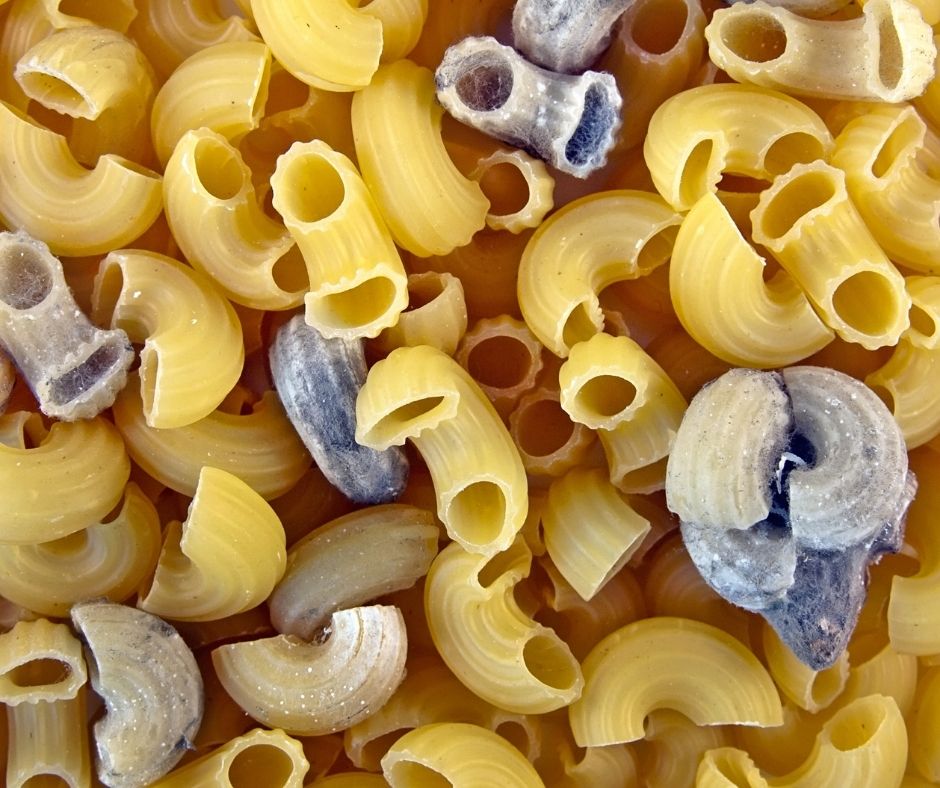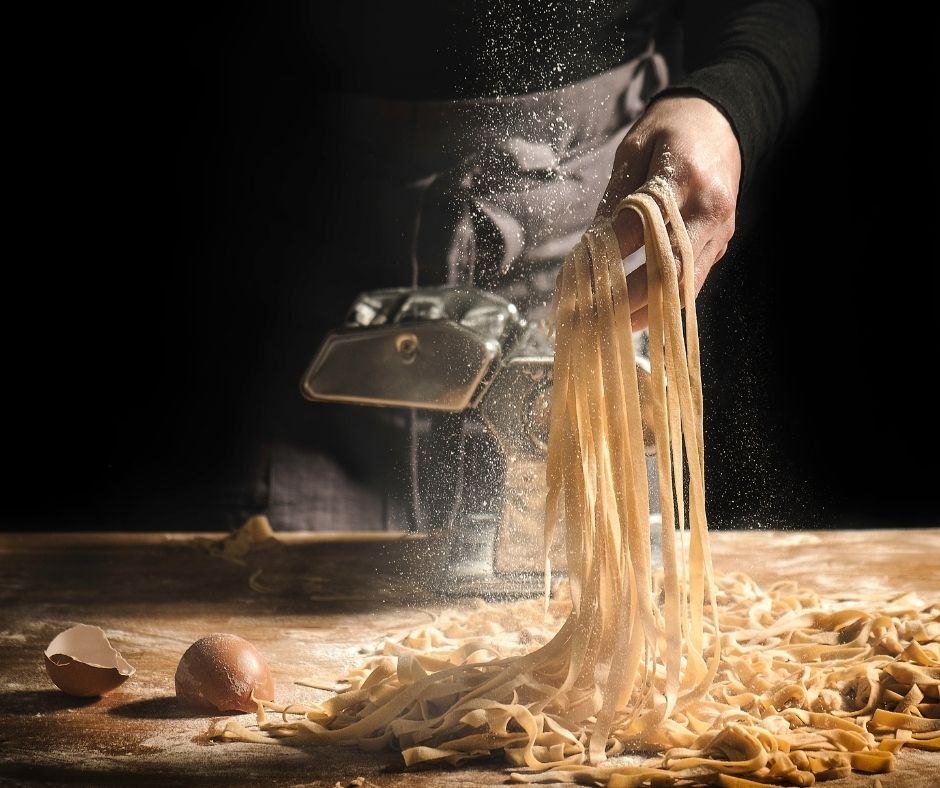Dry pasta is one of the truly great cooking ingredients for cooks who are cost-conscious. Even the pickiest eaters typically enjoy it because it is versatile, affordable, and healthy. Aside from those culinary virtues, its also durable. Dry pasta noodles can be kept for a long time in your pantry or cupboard with little special care. Although it doesn’t last forever, quality factors rather than food safety concerns are what limit how long it can be used.
Water and a particular kind of wheat known as durum are the only two ingredients used to make the majority of dry pasta. The majority of durum wheat, which is still grown and used extensively, is used to make pasta. It is combined to create a stiff dough, which is then extruded through a metal die to create a variety of shapes. Pasta that has been dried is as durable and hard as grains or beans. For flavor or color, some pasta recipes include eggs, spinach, tomatoes, squid ink, or other ingredients. When properly stored, these specialty noodles are just as durable as the plain variety.
Most brands of dry pasta have a “use-by” or “freshness date” stamped on the packaging. That is how long the pasta will maintain its flavor and nutrition, according to the manufacturer. These dates are typically conservative because manufacturers want you to continue purchasing their products on a regular basis. Most dried pastas are perfectly usable after two years on the shelf while still maintaining their best quality. Although their flavor and texture may deteriorate over time, the noodles are still safe to use unless they have been tainted in some way.
It’s important to use some common sense when working with pasta that’s old or of questionable age because pasta is resilient but not indestructible. You should discard the noodles if they are blotchy or discolored because they have likely been contaminated. The same is true if you discover insect egg cases, larvae, or insect eggs in the noodles. To test whether your pasta is still good and doesn’t smell musty, boil some water and cook a few noodles. Feel free to use them if their flavor and texture are satisfactory.
Using proper storage techniques, you can lengthen the shelf life of your pasta. Always store it in a cool, well-ventilated area because humidity and heat degrade the quality of pasta. Transferring your noodles to an airtight jar or storage container can help keep them usable for longer if you live in a particularly humid climate or if insects and other pests are a concern. Due to the natural oils in the grain, whole grain pasta can be more perishable than traditional pasta. Use whole-grain pasta within a few months or keep it well-wrapped in your freezer to prevent the oils from going rancid.
Fred Decker is a trained chef and prolific freelance writer. He was a longtime retailer who had previously sold mutual funds and insurance. He received his education at Northern Alberta Institute of Technology and Memorial University of Newfoundland. Numerous home and garden websites, such as GoneOutdoors, TheNest, and eHow, have published his articles.
How to tell if Pasta is bad, rotten or spoiled?
The prevention of foodborne illness can be achieved by following good hygiene and food safety practices.
Although it’s not a foolproof test, your senses are typically the best indicators of whether or not your pasta has gone bad. Bad fresh or cooked pasta or noodles frequently exhibit discoloration and a dull, slimy appearance before mold begins to form.
Naturally, eating spoiled food poses some health risks, so always remember to use good food hygiene and consume your food before its expiration date!
What are our shelf life resources?
Our content includes analysis from numerous sources, including the United States Department of Agriculture and the United States Food & Drug Administration, in determining how long pasta lasts. Additionally, we searched the internet for articles and reports that provided useful information about food safety, food storage, and the shelf life of pasta.
Signs That Your Pasta is Past its Shelf Life
Typically, you can tell whether your pasta is spoiled or not just by looking at it. Fresh, dried, canned, and cooked products all exhibit the same spoilage symptoms. The first step is to look at the package. The condition of the package is perfect; you should examine the contents.
Here is what to look for:

How long your pasta lasts depends on multiple factors. For example, dry pasta will likely disintegrate rather than decompose. Its production date, storage temperature, ingredients, and package type all play a role in this.
The ideal range for storing pasta is between 65F and 80F. Additionally, because pasta is very absorbent, you should store it in an environment with as little humidity as possible.
You can keep fresh pasta in the refrigerator and consume it within a few days. However, if you store leftover pasta in the refrigerator, it will be safe to eat within a week. However, if you freeze the leftovers, they can last up to eight months.
The duration of each type of pasta is shown in the table below:
| Pasta Type | Pantry | Fridge | Freezer |
| Dry (unopened) | Up to one year | ||
| Dry (opened) | One year | ||
| Canned (unopened) | Six months | ||
| Canned (opened) | Up to four days | Up to two months | |
| Cooked (wheat) | Up to four days | Up to two months | |
| Cooked (bean, lentil, or pea) | Up to five days | Up to eight months | |
| Cooked( with sauce) | Up to five days | Up to eight months | |
| Fresh (Store-bought) | Up to three days | Up to six months | |
| Fresh (homemade) | Up to five days | Up to two months | |
| Tortellini | Up to five days | ||
| Gluten-free | Up to five days | ||
| Lasagna | Up to five days |
Most pasta does not come with a strict expiration date. Nevertheless, here are some guidelines you can follow:
You can keep pasta leftovers for around five days. However, you can store them in the freezer for about two months. Would you please ensure you use a freezer-safe container?.
If you store fresh pasta in the refrigerator, it should be consumed within two days of purchase. Alternatively, if you want to use it for up to two months, you can store it in your freezer. It contains raw eggs, so please don’t keep it in the pantry.

As was previously mentioned, dried pasta does not go bad. However, its quality degrades over time. Dry pasta can be kept unopened in your pantry for up to two years. Opened dry pasta will be good for a year. Dry pasta can’t be frozen because it won’t keep for longer.
FAQ
Can you eat expired dry noodles?
Examine the Expiration Date The Manufacturer’s Best Estimate of When the Pasta’s Quality Will Deteriorate This is not necessarily the date the food is no longer edible. Pasta that has passed its best-by date may still be safe to eat but may not taste as good.
How long can you store uncooked noodles?
Dry pasta has a very long shelf life even without any special storage techniques. The majority of studies estimate that semolina pasta can be kept in a pantry in its original packaging for 2 to 3 years after its “best by” date. When protected against moisture, pasta can easily last 10+ years.
How do you know if your noodles are spoiled?
You should discard the pasta if there are any white spots, black or brown specks, or other indications of mold. The same applies if it smells strange or is kept for longer than, say, five days. Most of the time, dry pasta doesn’t spoil to the point where it becomes moldy and unfit for consumption. Not unless some moisture or other substances reach it.
How long do noodles last after expiration date?
Pasta in boxes can be stored dry for one to two years after the printed expiration date. Fresh (uncooked) pasta is only edible for four to five days after the date printed on the packaging. You can frequently find this type of pasta next to Italian cheese in the refrigerator section of the grocery store.